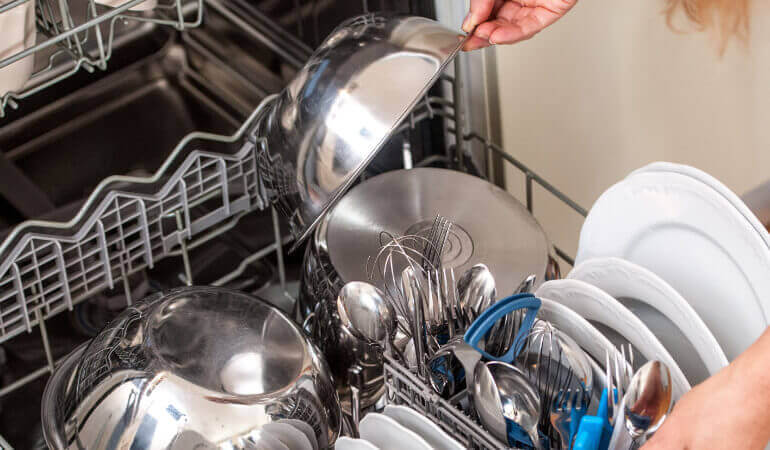

You may not know it but it is common for people to load their dishwasher incorrectly. This could result in your dishes being dirty, broken or even corroded over time.
Dishwasher detergents and tablets are specifically designed to cling to food particles and separate them from surfaces. Scrape any larger pieces of food and then load up the dishwasher. There is no need to pre-rinse your dishes.
Wooden spoons and knives can become dull and degrade because of the heat of the water. Lay large plastic and metal utensils (large spoons, spatulas) flat on the top rack. They could block the spray and prevent water from reaching the rest of the dishes if you would place them into the utensil basket.
To get spoons and forks cleaned to perfection mix up their positions in the utensil tray. Placing spoons and forks in alternate directions (some handles facing up, some down) keeps them from nesting into each other. This way it will be much easier for the detergent and water to reach them.
Just like with spoons, you should also load the plates in alternate directions, not in consistent one. Arrange each plate to face the center as much as possible to give it an even access to the detergent and sprayer. Load the plates alternatively between large and smaller sizes to improve the water flow and get your plates deeply cleaned every time.
Casserole dishes, cutting boards and large platters should always be placed on the bottom rack at the back or on the sides. Placing them in the front could prevent detergent and water reaching the rest of the load.
Stainless steel and silver utensils should be kept well away from each other in the dishwasher. If the two metals would collide they will produce a chemical reaction that could pit and dent the silver. Place stainless steel and silver utensils in opposite ends of the utensil basket.
Avoid overfilling your dishwasher if you want your dishes to come out clean.
